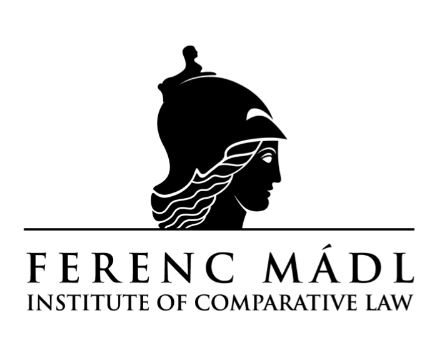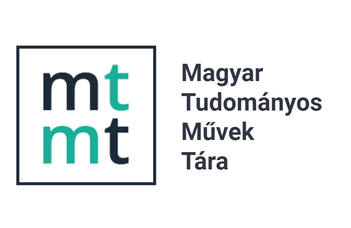The right of children to adoption in light of the European Convention on Human Rights
DOI:
https://doi.org/10.46941/2023.e1.5Keywords:
adoption, child, child's best interest, family, marriage, discrimination, ultima ratio, case law.Abstract
Each country applies its own national rules on the authorization and possible termination of adoption. Nevertheless, the practice of adoption is based on commonly agreed-upon principles and values, including the best interests of the child, which also affect the final fate of the child. The primary aim of adoption worldwide is to establish kinship between the adopter, his or her relatives, and the adopted child to ensure that the child is brought up in a family. Adoption remains the most appropriate legal instrument to replace birth families. International adoption is a secondary option that can occur when domestic adoption measures fail, with the exception of adoption by relatives and spouses. The protection of human rights is an important area in the wide range of activities of the Council of Europe, which was founded in 1949. The European Convention on Human Rights (ECHR), adopted in Rome in 1950, is an international norm that can be directly invoked and applied in the legal systems of states, including Hungary. The ECHR is a framework convention and therefore the substance of each right is expounded in the case law of the European Court of Human Rights (ECtHR). The case law of the ECHR is rich and authoritative in the field of fundamental rights protection and has ruled on several socially important issues, including adoption in the area of family law. The intention to adopt can be interpreted as the creation of a family because a family can be created through adoption, but the ECHR does not provide a substantive right to adoption.
References
Bereczki, I. (2021) Gyermeki jogok a szülői felelősségről szóló nemzetközi magánjogi szabályozás perspektívájából. Budapest: Wolters Kluwer.
Dudás, D. V. (2021) Emberi Jogi Kézikönyv az EJEB gyakorlata alapján. Budapest: Wolters Kluwer.
Grád, A., Lakatos, V. (2012) ‘A családi élet fogalma az Emberi Jogok Európai Bíróságának gyakorlatában’, Családjog, 10(4), pp. 32–36.
Grád, A., Weller M. (2011) A strasbourgi emberi jogi bíráskodás kézikönyve. Budapest: HVG -ORAC.Harcsa, I. (2014) ‘A családformák változásának trendjei és azok értelmezése – a pluralizáció színe és fonákja’, Kapocs, 13(4), pp. 2–12.
Katonáné Pehr, E. (2018) ‘Örökbefogadás’ in Jakab, A., Fekete, B. (eds.) Internetes Jogtudományi Enciklopédia (Section editor: Hegedűs, A.) [Online]. Available at: http://ijoten.hu/szocikk/örökbefogadás (Accessed: 20 January 2023).
Katonáné Pehr, E., Filó, E. (2022) Gyermeki jogok, szülői felelősség és gyermekvédelem. Budapest: ORAC, pp. 169–201.
Katonáné Pehr, E. (2021) ‘Örökbefogadás’ in Hergerné, Cs. (ed) Magyar Családjog. Budapest: Novissima, pp. 195–245.
Kálmán, R. (2018) ‘Ne hagyj árván! Avagy a külföldre történő örökbefogadás hazai gyakorlata’, Ars Boni, 6(2), pp. 47–58.
Lápossy, A., Tasi, K. (2018) ‘Joggal mérlegelve – a gyermekközpontú örökbefogadási eljárás követelményei az ombudsmani gyakorlat tükrében’, Családjog, 16(4), pp. 16–22.
Marschalkó, L. (2013) ‘Az örökbefogadás és a gyermek legjobb érdeke’, Iustum Aequum Salutare, (9)2, pp. 265–279.
Neményi, M., Takács, J. (2015) ‘Örökbefogadás és diszkrimináció Magyarországon’, Esély, 2015/2, pp. 67–96.
O’Flaherty, M., Fisher, J. (2008) ‘Szexuális orientáció, nemi identitás és nemzetközi emberi jogok: a Yogyakarta alapelvek’, Fundamentum, 12(3), pp. 5–19.
Polgár, E. (2008) ‘Az Emberi Jogok Európai Bíróságának ítéleteiből’, Fundamentum, 12(1), pp. 89–91 [Online]. Available at: https://epa.oszk.hu/02300/02334/00030/pdf/ (Accessed 20 January 2023).
Raffai, K. (2016) ‘Határon áthúzódó házassági ügyek és az emberi jogok védelme’, Iustum Aequum Salutare, 12(1), pp. 83–95.
Rácz, A. (2020) ‘A gyermekvédelmi rendszer szakmaképe, az érintett gyermekek és szüleik családképe egy kutatás tükrében’, Családjog, 18(1), pp. 16–22.
Szeibert, O. (2014) ‘A gyermek meghallgatása az európai országok gyakorlatában – Németország, Svájc, Belgium, Franciaország’, Családjog, 12(3), pp. 31–36.
Szentgáli-Tóth, B. (2018) A gyermekek jogai az Emberi Jogok Európai Bíróságának gyakorlatában, különös tekintettel a magyar vonatkozású ügyekre, p. 8 [Online]. Available at: http://real.mtak.hu/135110/1/AgyermekekjogaiazEJEBgyakorlataban.2018.10.05.pdf (Accessed: 20 January 2023).
Vaskovics, L. (2002) ‘A családfejlődés Európában’, Educatio, 11(3), pp. 349–364.
Winkler, B. (2003) ‘Érdekesebb jogesetek a Strasbourgi Emberi Jogi Bíróság legfrissebb családjogi gyakorlatából’, Családjog, 1(1), pp. 27–30.





